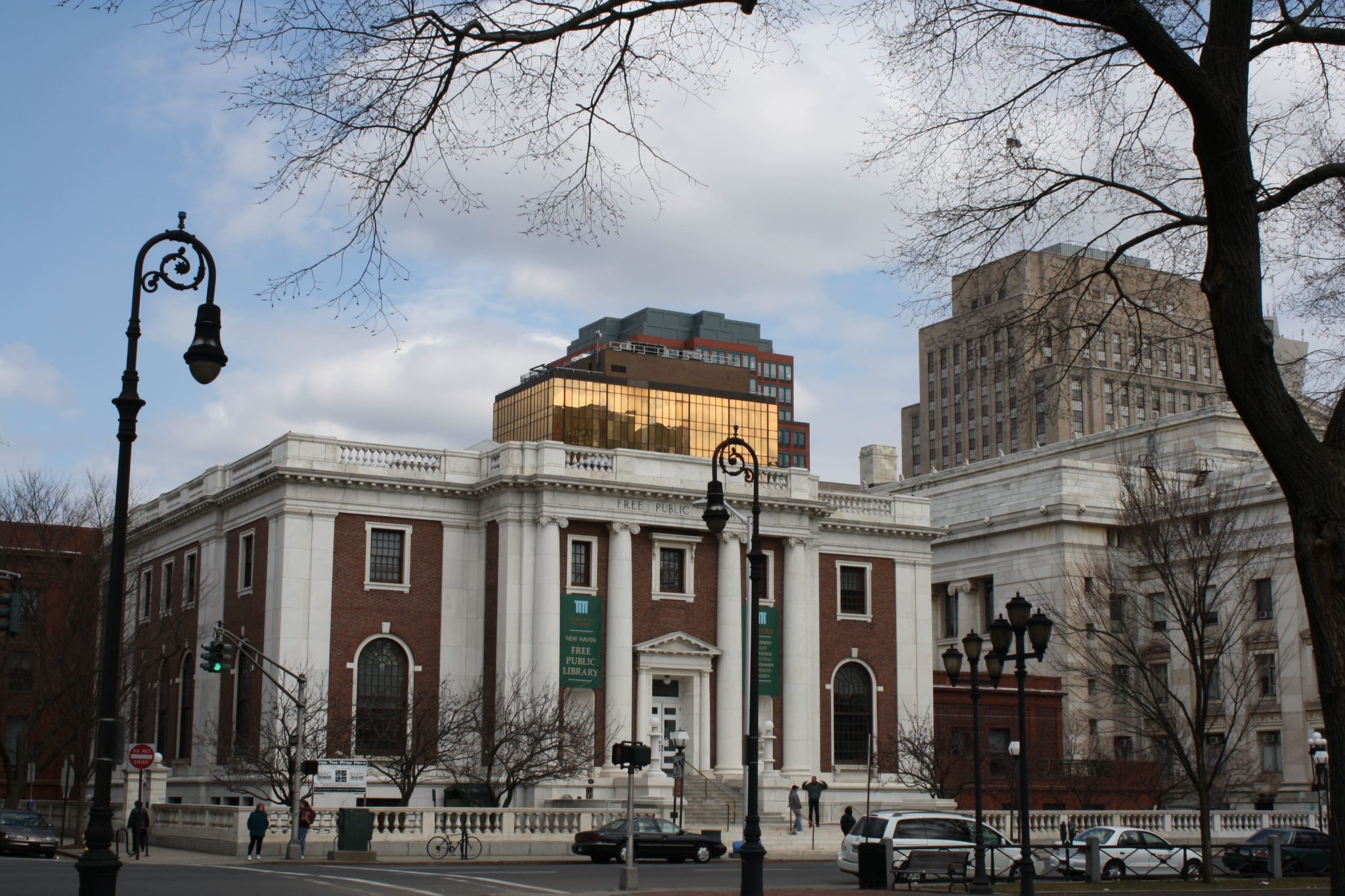
Wikimedia Commons
Members of the Yale community and the greater New Haven area crowded within the crimson walls of the program room at the New Haven Free Public Library to listen to a talk entitled “Race and Immigration in the Contemporary U.S.” on Tuesday night.
The panel, which is part of a monthly program called “Democracy in Crisis” that invites scholars to speak at the library, featured professors from Yale’s American Studies and Ethnicity, Race and Migration programs — Alicia Schmidt Camacho, Daniel HoSang and Stephen Pitti. The event focused on changes in immigration patterns to the United States in recent years and discussed the importance of migrant mobility.
According to Camacho, the free movement of people throughout North America has been the status quo for hundreds of years. There have traditionally been many reasons for such movement, such as labor contracting, policymaking, border building, economic investment and military intervention. This movement, though never particularly safe, has been stable until recent years.
“Only in the last 25 years has the immigration process been disrupted by total militarization targeted at an unarmed population,” Camacho said.
Camacho condemned the actions of the U.S. government to try to inhibit the movement of people. She talked about how barriers at crossing points force people to cross through dangerous territory instead, leading to more organized crime and assault, which she claimed was often at the hands of U.S. agents. A border wall, according to Camacho, is akin to a prison wall — a way of weaponizing territory and using it to deny the basic human need of moving to survive.
Camacho also highlighted the distorted narratives of refugees disseminated by the media and politicians. She mentioned that the far right tends to paint immigration as an invasion of drug dealers or terrorists attempting to disrupt the lives of U.S. citizens. Others in society portray it as a “biblical Exodus” of refugees completely deprived of liberty and means of living. Both these portrayals are unsatisfactory pictures of immigrants, Camacho said.
“They both share the language of crisis, but they don’t help us see or understand who these people are.” Camacho said.
She went on to characterize the “migrant caravan” — about 7,000 Central American migrants who have arrived the U.S. border in the past few months — as an effective mass movement that has mobilized and made visible the suffering of migrants, to which she said Americans have become desensitized. By virtue of their ability to gather resources and migrate, Camacho said, members of the Caravan are not the worst-off in their country. She emphasized that the migrants are not an “undifferentiated mass,” but instead, restarting to take control of their own narratives through their self organization.
Janis Jin ’20, an ER&M major, was particularly pleased at the accessibility of the talk at the New Haven Public Library, explaining that there was noticeably more diversity in the audience than at events of the same nature held on Yale’s campus.
Sylvia Ryerson GRD ’24, a graduate student in American studies, emphasized the importance of understanding what the caravan represents.
“We’re at an important moment in organizing, but it’s a long project,” she said.
Hartford resident Michael Smith agreed with the majority of the content of the talk and added that the U.S. often loses “the greater perspective” in discussions about migration. Smith lamented the nation’s gradual distancing from other parts of North America and voiced his support for more unity between neighboring nations.
The next event in the New Haven Free Public Library speaker sequence called “Heritage, Memory, and the Future City” will take place on March 26.
Meera Shoaib | meera.shoaib@yale.edu







